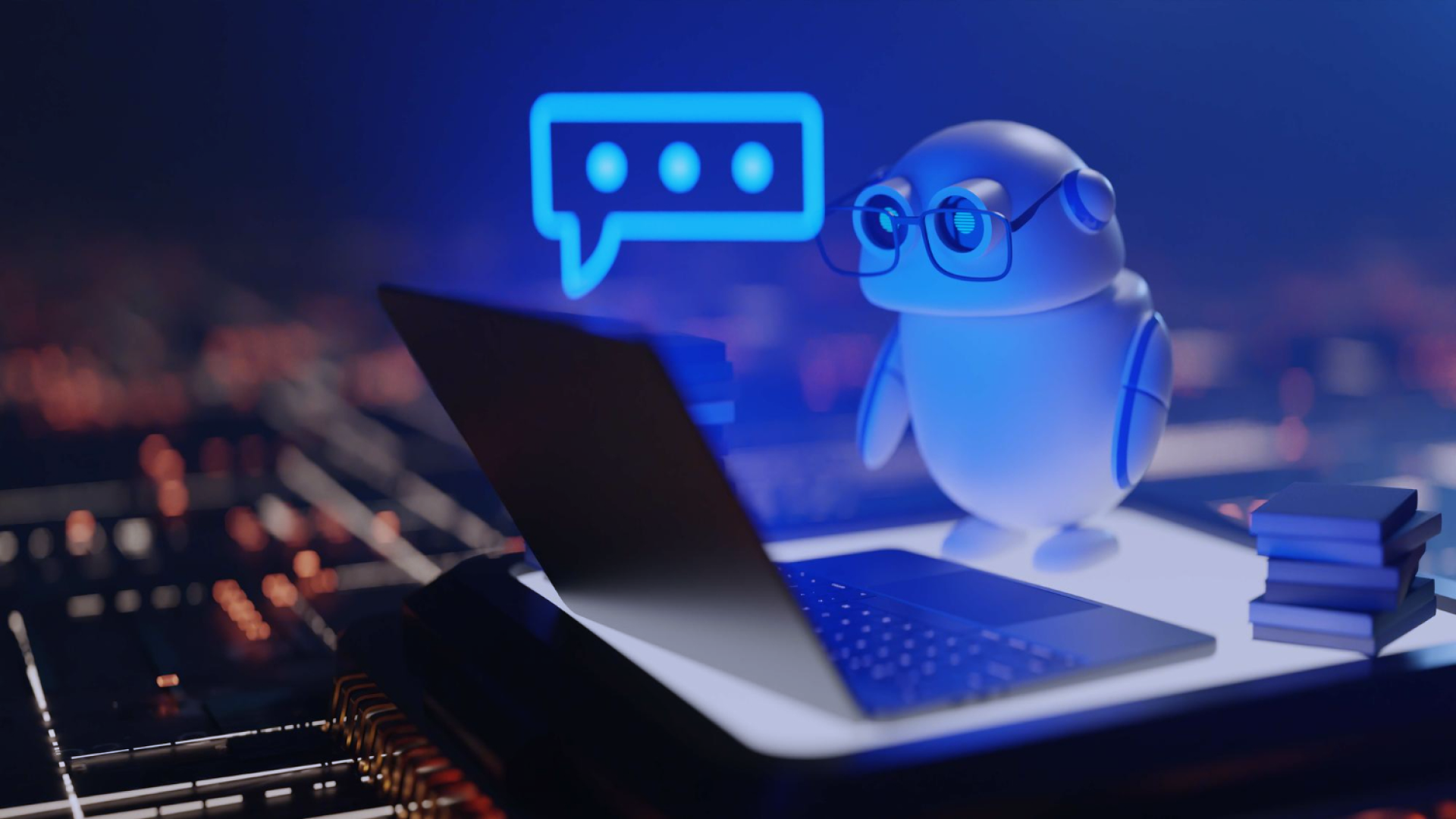With rapid technological advancements, it comes as no shock that artificial intelligence (AI) is progressively integrating into the realm of recruitment. AI-driven tools aid HR professionals in optimizing the recruitment process, reducing time and costs, and identifying the most suitable candidates for the job. AI encompasses a diverse range of technologies that enable machines to simulate human intelligence and perform tasks that typically require human cognition. In the context of hiring, AI algorithms and tools are specifically designed to streamline the recruitment process, identify the most suitable candidates, and mitigate human biases that might influence decisions.
Current Landscape: AI in Hiring

The incorporation of AI in hiring and recruitment landscape has been significant, with many talent teams adopting various AI tools to enhance their processes. Notably, AI-driven chatbots have become prevalent, assisting with day-to-day tasks like answering candidate queries, scheduling interviews, and optimizing job posts. This seamless integration of AI solutions has not only streamlined the candidate experience but also vastly improved the overall efficiency of the recruitment process.
For candidates, check out our article on How to tell your compelling career story in an Interview to boost your chances to land your dream job.
Evolving Hiring with AI
One of the most notable advantages of AI in hiring is the potential time savings for recruiters. Leading experts in the field, such as Glen Cathey, highlight the capabilities of General Artificial Intelligence (GAI) in automating a multitude of repetitive recruiting tasks. From crafting job descriptions to conducting candidate outreach, generating search strings, and even suggesting potential interview questions, AI can handle numerous fundamental recruitment tasks. This development has given rise to hope and optimism among hirers who believe AI will save them valuable time and resources.
Improving Candidate Sourcing with AI
Automated Job Advertisements

Traditional job advertisements often involve manual effort, with recruiters crafting and disseminating job postings across multiple platforms such as WhiteCrow. With AI, this process is significantly optimized. AI-powered tools can analyze job requirements, the target audience, and the best-performing platforms to automatically generate tailored job advertisements. By leveraging AI in this manner, organizations can attract a more relevant talent pool of candidates efficiently.
AI-Enhanced Talent Search
AI has revolutionized candidate sourcing by scouring the vast expanse of online platforms, databases, and social media networks. It can quickly identify potential candidates with the desired skill sets, qualifications, and experience, thereby significantly expanding the talent pool. The ability to cast a wider net through AI-driven talent searches improves the chances of discovering hidden gems that might not have otherwise come to the company’s attention.
Eliminating Bias
Unbiased Screening
AI can also help eliminate unconscious bias in the hiring process. AI-powered algorithms can screen applicants based solely on their qualifications, help recruiters make more objective decisions based solely on qualifications, skills, and experience, disregarding personal information such as gender, race, ethnicity, name, address, and even education history that could lead to bias and help recruiters make more objective decisions based solely on qualifications and experience
Anonymization
AI tools can anonymize resumes and applications, removing any identifying information that could potentially trigger bias, and allowing candidates to be evaluated solely on their merits.
Diverse Data Training
Ensuring that AI models are trained on diverse and inclusive datasets can help prevent the perpetuation of biased decisions.
Standardized Evaluation
AI can provide a consistent and standardized evaluation of candidates, removing the possibility of subjective biases that can occur with human recruiters.
Continuous Learning
AI systems can learn from their own mistakes and be fine-tuned to identify and rectify any biases that may have crept into their decision-making processes.
Auditing and Accountability
AI algorithms can be audited and reviewed for bias, allowing for transparency and accountability in the hiring process.
Identifying Biased Language
AI can flag and recommend changes to job descriptions and job postings that inadvertently contain biased language, helping attract a more diverse pool of applicants.
By leveraging AI in hiring, organizations such as WhiteCrow Research have taken significant steps towards creating a fairer and more inclusive recruitment process that values candidates based on their qualifications and skills rather than any irrelevant personal characteristics.
Enhancing Resume Screening Process

Efficient Resume Parsing
Reviewing numerous resumes manually can be an overwhelming and time-consuming task for recruiters. AI comes to the rescue with efficient resume parsing capabilities. AI-driven parsing tools can quickly scan and extract relevant information from resumes, such as education, work experience, and skills. By automating this process, recruiters can focus on more strategic aspects of the hiring process, saving time and resources.
Eliminating Bias in Resume Screening
Unconscious biases can unintentionally influence the resume screening process, leading to potential discrimination and exclusion of deserving candidates. AI can be trained to disregard demographic information, such as names and addresses, during the initial screening phase. This helps to ensure a fair and unbiased evaluation of candidates based on their qualifications and experience alone.
Recruiters will become increasingly important for outbound recruiting
While AI promises more efficient outreach to potential candidates, the human touch in outbound recruiting remains essential. Experts stress the significance of recruiters’ influence and relationship-building skills when reaching out to passive candidates. Glen Cathey emphasizes that completely robotic outreach may not be as effective as genuine human interaction. Skilled recruiters can convert initial resistance from passive candidates into genuine interest and consideration for new opportunities. As AI becomes more prevalent, recruiters who are fluent in AI and can leverage it to enhance their interpersonal skills will be at the forefront of talent acquisition.
Conducting Smart Interviews
AI-Powered Chatbots

The initial stages of interviews can often be repetitive and time-consuming, involving preliminary discussions with candidates to assess their qualifications and interest in the position. AI-powered chatbots equipped with natural language processing capabilities can efficiently conduct these preliminary interviews. By interacting with candidates in a conversational manner, chatbots can gather valuable insights and assess if the candidates meet the basic job requirements.
Video Interview Analysis
In the age of remote work, video interviews have become more prevalent. AI algorithms can take video interviews to the next level by analyzing candidates’ facial expressions, tone, and speech patterns. These AI-driven insights provide additional data points for recruiters to make more informed decisions and understand candidates better beyond what’s on their resumes.
Assessing Candidate Skills and Fit

Skills-first hiring will become more achievable
Evaluating candidates’ skills accurately is crucial for hiring success. AI-based assessment tools can conduct skills tests, ranging from technical assessments to problem-solving scenarios. The data-driven nature of these assessments ensures a more objective evaluation of candidates’ capabilities, providing valuable information to aid in decision-making.
Focusing on candidates’ T-Shaped skills and performance rather than relying solely on pedigree is gaining recognition as a more accurate predictor of success in hiring. However, human bias has been a barrier to achieving skills-first hiring. AI, paradoxically, has the potential to both perpetuate and mitigate biases in hiring decisions. AI’s ability to show bias also allows for scrutiny and correction, unlike the unconscious biases of humans. By leveraging AI’s equal treatment and data-driven approach, organizations can begin fostering equity in the hiring process, leading to more diverse and inclusive teams.
Cultural Fit Analysis
Finding candidates who align with the company’s culture and values is essential for long-term success and employee retention. AI can analyze candidates’ online presence, such as social media activity, to gauge cultural fit. This data-driven approach provides recruiters with insights into candidates’ personalities and potential alignment with the organization’s culture.
Reducing Time-to-Hire

Automating Candidate Communication
Recruiting processes often involve multiple touchpoints with candidates, such as interview scheduling, feedback sharing, and status updates. AI-powered chatbots and email systems can automate candidate communication, ensuring timely responses and updates. Reducing the time taken for these communication processes expedites the overall hiring timeline.
Transformation of Talent Acquisition (TA)
The role of talent acquisition (TA) professionals is set to transform, becoming more agile and potentially more specialized. Recruiters may increasingly focus on specific areas within the talent space and HR functions, tailoring their expertise to meet the organization’s unique needs. Some recruiters may concentrate on diversity, equity, and inclusion (DEI), while others become internal mobility advisors, guiding employees through career progression within the company. The name of the role itself may evolve to reflect the shift in responsibilities, with titles such as “talent delivery” or “talent fulfillment” gaining.
You can check out our conversation with ELENI KITRA, Founder & CEO of Dubai-based consultancy PeopleFirst, about diversity and inclusion and how her organization helps others unleash the power of people here.
AI in Hiring: Streamlining Background Checks
AI technology has emerged as a powerful tool in streamlining background checks during the hiring process. Traditionally, conducting background checks on potential candidates involved a time-consuming and manual process. However, with AI, this process has become significantly more efficient and accurate.
AI algorithms can quickly scan and analyze vast amounts of data, including employment history, education credentials, criminal records, and more, to verify a candidate’s background. This expedites the screening process, allowing recruiters to focus on more critical aspects of hiring, such as assessing cultural fit and skills.
Moreover, AI-driven background checks are more reliable than their manual counterparts, minimizing the risk of human errors or biases. By automating the process, the chances of overlooking essential information or making subjective judgments are reduced.
The Significance of Soft Skills in AI-Driven Hiring
While AI technology has revolutionized the hiring process with its data-driven approach, the significance of soft skills remains paramount. Soft skills refer to personal attributes such as communication, emotional intelligence, adaptability, and teamwork, which are crucial for success in any work environment.
While AI is excellent at screening candidates based on technical qualifications, it struggles to accurately assess soft skills. This is where human intervention becomes necessary. Recruiters must utilize their emotional intelligence and communication skills to engage with candidates and effectively evaluate their soft skills.
In a competitive job market, where numerous candidates possess similar technical qualifications, soft skills can be the differentiating factor. Companies are increasingly recognizing the importance of fostering a positive and inclusive work culture, making soft skills essential for building strong team dynamics and employee satisfaction.
Improving Employee Retention with AI
AI not only aids in identifying suitable candidates but also contributes to improving employee retention rates. Predictive analytics, a subset of AI, plays a significant role in achieving this.
By analyzing historical employee data, including tenure, performance, and job satisfaction, AI algorithms can identify patterns and factors contributing to long-term success within the company. This enables recruiters to focus on candidates who are more likely to thrive in the company’s unique environment, thus reducing turnover and improving employee satisfaction.
Personalized Onboarding Experience
The onboarding process plays a crucial role in shaping a new employee’s perception of the company and can significantly impact their decision to stay with the organization. AI contributes to employee retention by personalizing the onboarding experience.

AI algorithms can assess individual preferences and learning styles based on available data and adapt the onboarding process accordingly. This ensures that new employees receive the necessary support, resources, and training tailored to their specific needs, leading to a positive start and a stronger sense of belonging within the organization.
Addressing Diversity and Inclusion with AI in Hiring
AI technology can be a powerful ally in addressing diversity and inclusion challenges in the hiring process. One critical area where AI can make a difference is in identifying bias in job descriptions.
Unintentional bias in job postings can deter qualified candidates from applying, resulting in a less diverse candidate pool. AI-powered natural language processing can help detect biased language and suggest alternative phrasing to create more inclusive job descriptions that attract a diverse range of candidates.
Diverse Candidate Sourcing through AI
To promote diversity and inclusion in the workplace, organizations must actively seek out candidates from diverse backgrounds. AI-powered talent sourcing can play a pivotal role in achieving this objective.
AI algorithms can search and analyze a wide range of sources to identify potential candidates from different demographics, locations, and experiences. This helps companies broaden their candidate pool and ensures that they have access to a diverse talent pool from which to select the best fit for the role.
Ethical Considerations of AI in Hiring
As AI becomes more integrated into the hiring process, organizations must be mindful of the ethical considerations involved. Transparency and human oversight are crucial to ensure the fairness and accountability of AI-driven hiring practices.

While AI can streamline the hiring process and improve efficiency, it should not replace human judgment entirely. Human intervention remains essential to interpret and evaluate the results produced by AI algorithms accurately. Additionally, organizations must be transparent with candidates about the use of AI in the hiring process and how their data will be handled.
Furthermore, organizations must continually monitor and audit their AI systems to identify and rectify any biases that may inadvertently emerge. Regular evaluations can help maintain fairness and ensure that the technology aligns with the organization’s values and objectives.
In conclusion, AI in hiring has brought numerous advancements to the recruitment process, from streamlining background checks to improving employee retention and addressing diversity and inclusion. However, ethical considerations and the importance of human judgment and soft skills should not be overlooked. By striking the right balance between AI automation and human intervention, organizations can optimize their hiring processes while fostering an inclusive and equitable workplace.
FAQs
Will AI replace human recruiters entirely?
AI will augment the recruiting process, but human recruiters will remain essential for tasks that require empathy, strategic thinking, and relationship building.
Can AI predict a candidate’s future success accurately?
While AI can provide valuable insights, predicting future success is still challenging due to the complex nature of human behavior.
Are AI-driven interviews as effective as in-person interviews?
AI-driven interviews are efficient for initial assessments but may not replace the depth of interaction possible in face-to-face interviews.
How can companies ensure their AI systems are not biased?
Regularly auditing and calibrating AI algorithms, using diverse data sets, and involving human oversight can help mitigate bias in AI systems.
Is AI suitable for all types of roles and industries?
AI can be applied to various roles and industries, but its effectiveness may vary depending on the specific requirements and complexities of the positions.
Can AI identify soft skills in candidates?
AI is continually improving in identifying soft skills through natural language processing and sentiment analysis.
What are the potential downsides of relying on AI in hiring?
Potential downsides include over-reliance on algorithms, dehumanization of the process, and a lack of transparency.
Can AI tools handle high volumes of applications?
AI tools excel at handling large volumes of applications, saving time for recruiters and improving overall efficiency.
Is AI costly to implement in the hiring process?
While there are costs associated with AI implementation, the long-term benefits often outweigh the initial investment.
Will AI be able to replace face-to-face interviews entirely in the future?
While AI might facilitate more virtual interviews, face-to-face interactions will likely remain important for critical roles and assessments.
